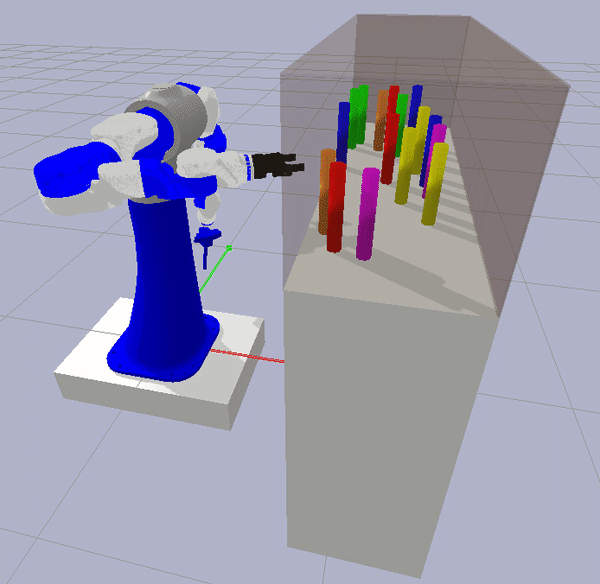Lazy Rearrangement Planning in Confined Spaces
Object rearrangement is important for many applications but remains challenging, especially in confined spaces, such as shelves, where objects cannot be accessed from above and they block reachability to each other. Such constraints require many motion planning and collision checking calls, which are computationally expensive. In addition, the arrangement space grows exponentially with the number of objects. To address these issues, this work introduces a lazy evaluation framework with a local monotone solver and a global planner. Monotone instances are those that can be solved by moving each object at most once. A key insight is that reachability constraints at the grasps for objects' starts and goals can quickly reveal dependencies between objects without having to execute expensive motion planning queries. Given that, the local solver builds lazily a search tree that respects these reachability constraints without verifying that the arm paths are collision free. It only collision checks when a promising solution is found. If a monotone solution is not found, the non-monotone planner loads the lazy search tree and explores ways to move objects to intermediate locations from where monotone solutions to the goal can be found. Results show that the proposed framework can solve difficult instances in confined spaces with up to 16 objects, which state-of-the-art methods fail to solve. It also solves problems faster than alternatives, when the alternatives find a solution. It also achieves high-quality solutions, i.e., only 1.8 additional actions on average are needed for non-monotone instances.
PDF Abstract
